Bucha, Nikolaev, and Kiev
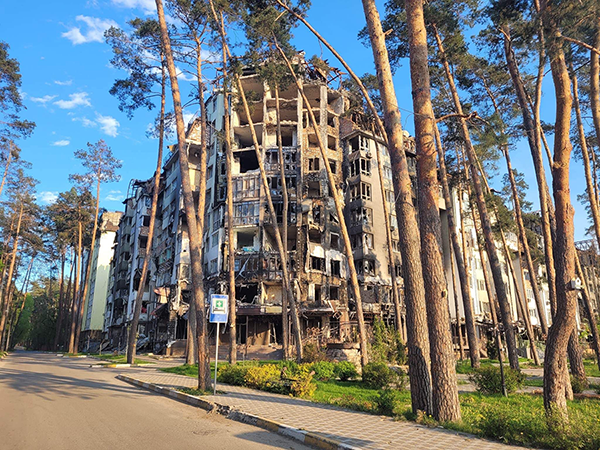
While I was in Bucha, I had the opportunity to see the amount of destruction that had been brought to that city, to that region. And it was absolutely devastating. Buildings completely destroyed with artillery fire, bombs, missiles, eveything that you can imagine, homes just riddled with bullets. It was absolute destruction everywhere.
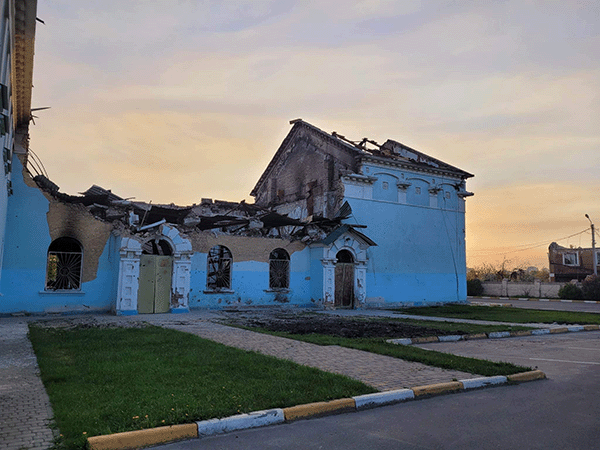
In Bucha, the city that the Russians had destroyed and killed so many civilians, women and children, I came across a theater. A place where live stage was still alive and a place where the community would gather. It had been completely destroyed. It had been bombed, it had been shot with gunfire. No reason. No reason at all. It was a simple building. It was a stage for the community to come together. And it had just been destroyed.
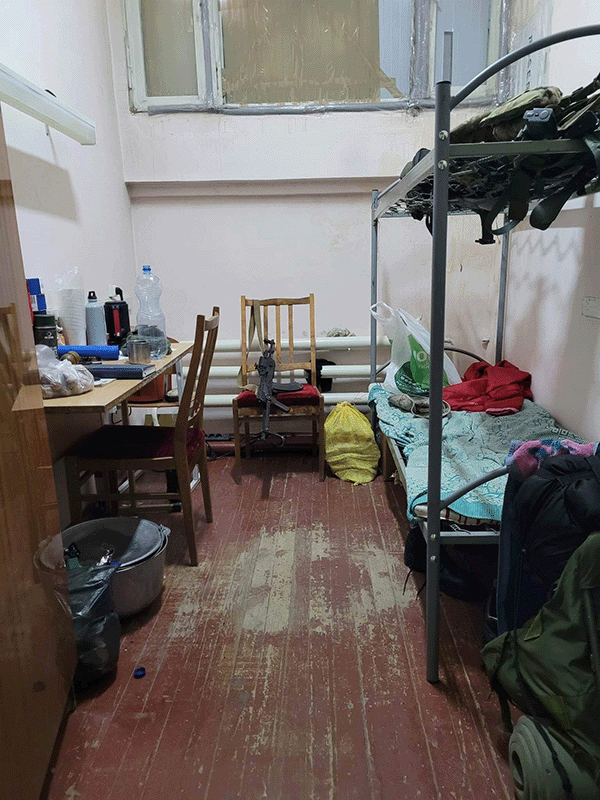
While meeting with my coworkers and friends, one of the commanders showed me his office which is also where he lives during this time. He had a very palatial room compared to what most had. Most of the officers who were deployed were sleeping on the floor. He had his own room – he has a desk and a nice bed to lay his gear on when he is taking 5 minutes to rest. There’s no cafeteria, no mess hall, no supply train bringing in food and necessities. It’s whatever they can find. Whatever they can get from people who donate. From citizens who are willing to give up so they can have something.
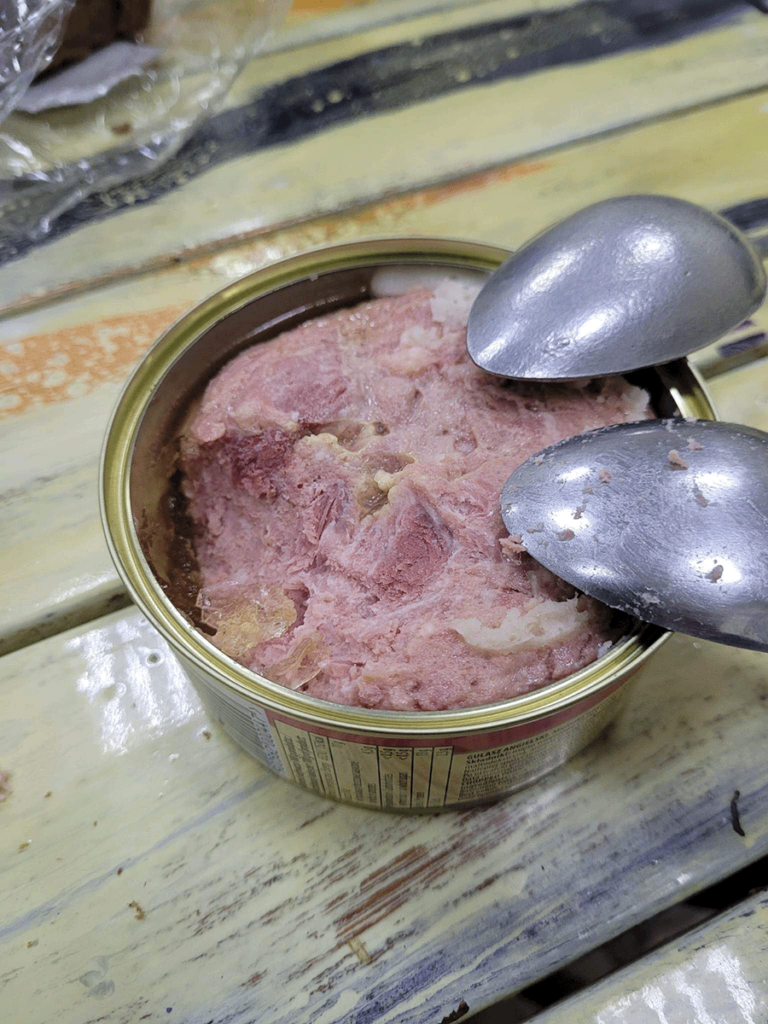
War is hell. You eat what you can, when you can, with what you can find, with what you’re given. If it is canned meat you don’t ask what it is.You eat because it’s what you’ve got and you share it with whoever is there. And hopefully you have some bread or something to wash it down with.
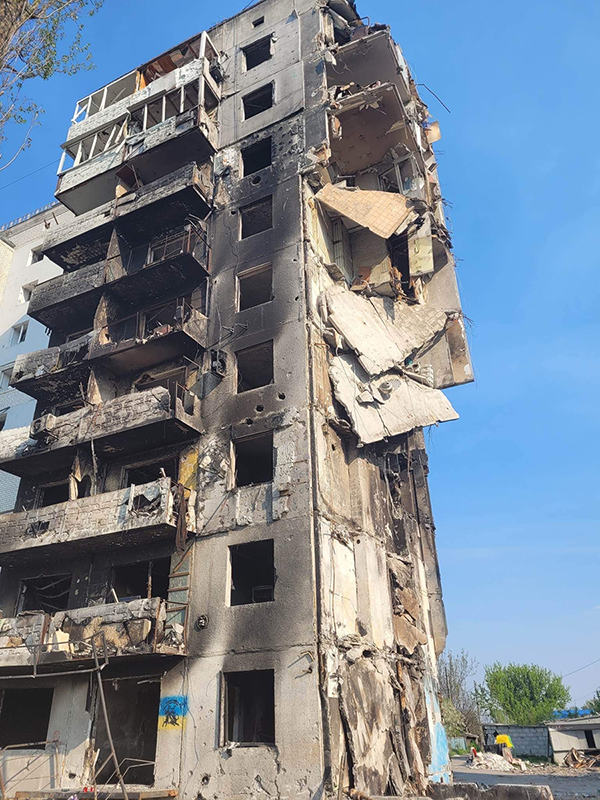
Even though it had been several weeks since the attack on Bucha, the scorch marks on the buildings, the fires that had burned were still evident. The citizens had done everything they could to clear the streets of the rubble and debris so that the officers and military could come in and deal with the scene — the bodies, the women and the children.
Some people still passionate about their country would make sure that they would know that this building was a Ukraine building, that it was the house for the residents, the people that lived there.
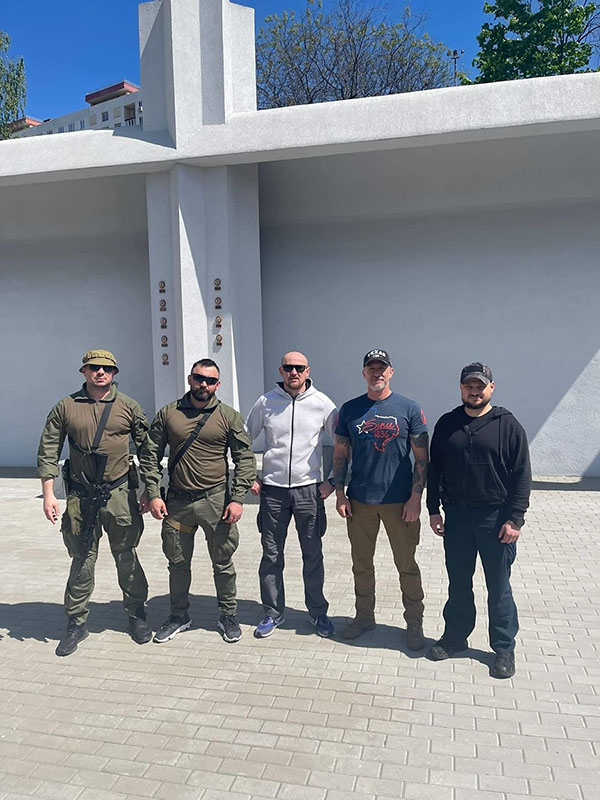
While in the capital of Kiev, I met with their leadership at the patrol police headquarters and Alex Biloshytskiy. They were in a meeting with two gentleman who are the owners of Veteranos Pizza, a Veteran owned and operated pizza establishment. Those two gentlemen were going back to war and wanted to check in before heading out. Fortunately I had the privilege of meeting them.
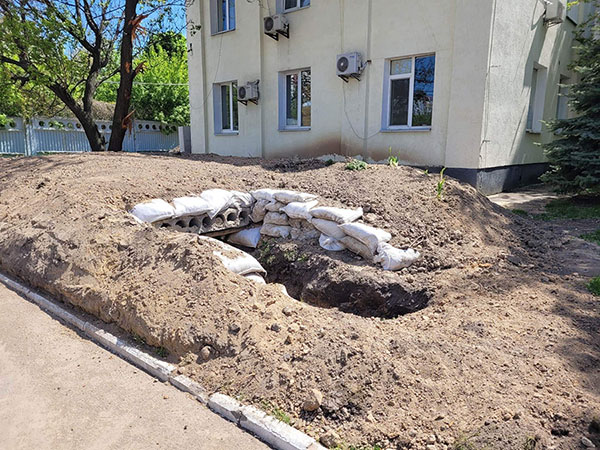
While in Kiev I visited the patrol police headquarters. Being a target of Russian missile attacks and so forth, they had created their own bomb shelter in their gardens. They ripped out bushes for flowers in the places they would normally sit and relax, digging holes in the ground and covering them with construction concrete they had found. So when missille attacks were coming in, they had a some kind of a shelter to get in.
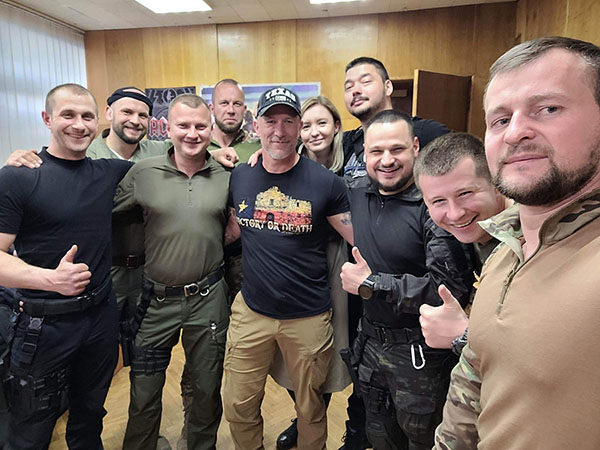
During my first visit I met with the chiefs of the major cities in the Ukraine. I met with the leadership of the patrol police. They welcomed me, we became friends and they encouraged me to keep coming back.
When the war started in Ukraine one of my first thoughts was, “someone should do something.” And I reminded myself that I am someone and I can do something. And it might not be much. Being a police officer myself, I realized a long time ago that we can’t save everyone. We can’t catch every criminal. We can’t help every person that needs our help. We try, and we fail, and we try again. I knew going to Ukraine on my own wasn’t going to stop a war. I wasn’t going to save everyone. But if I could help just one person, if I could help just one family, it was worth it.
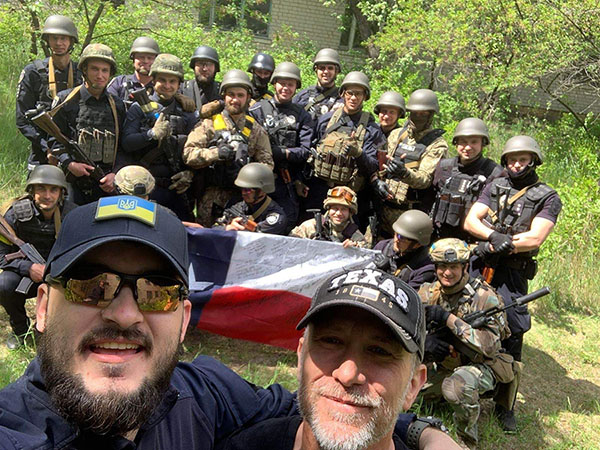
During my trips to the Ukraine I met with officers that I had the honor of teaching and working with. They were being asked to do something they’d never been trained to do before and I had not been able to prepare them for. They were asked to be soldiers and they were police officers. They were being asked to go to the front lines and help do their part.
I met with a group of officers who were preparing to go to the front. We shared stories, we joked, we laughed. They asked me for help. And I told them that I was not there at that time to help. I was there to listen, that I was someone who was not part of their chain of command, that I was not their boss and any stories we shared were just two friends sitting and talking.
I collected a lot of stories and shared a lot of laughs and tears with my brothers and had to say goodbye to them as I went on to do what I needed to do and they went off to do what they needed to do.
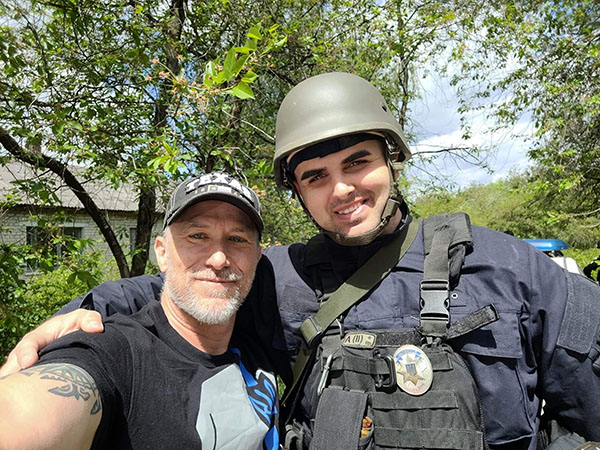
I met one of my former students, a giant among many with a very gentle heart. Always with a smile and a hug. I walked up as he was busy training and he was in formation and paying attention as he should. He caught a glimpse of me out of the corner of his eye and like the big kid that he is, he grinned like crazy. He waived at me even though he was in formation, but could not wait so he broke formation and ran over to me to give me the biggest hug. His English is limited but he tried so hard and he was just grateful to see an old friend.
We spent a lot of time over the years training as he went from being a student to being a teacher. To a soldier. I hope that when I see him again, he still has that smile.
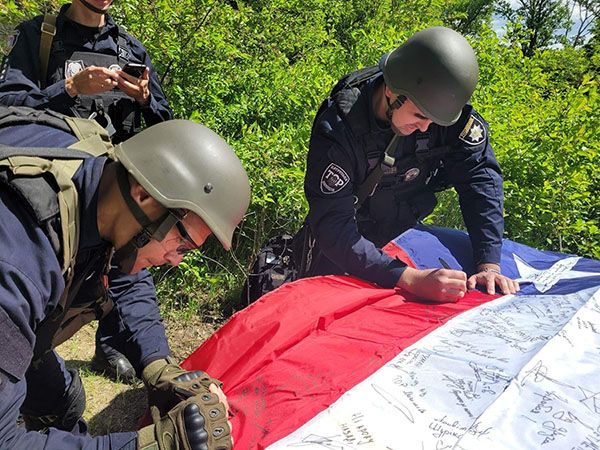
Being a Texan, I could not go to the Ukraine without taking a flag with me. I wanted every officer I met to know that we, Texas at least, knew what they were going through. And I wanted all of them to sign my flag, to put a message, to write their name, and I would bring it home with me so they would know they would not be forgotten.
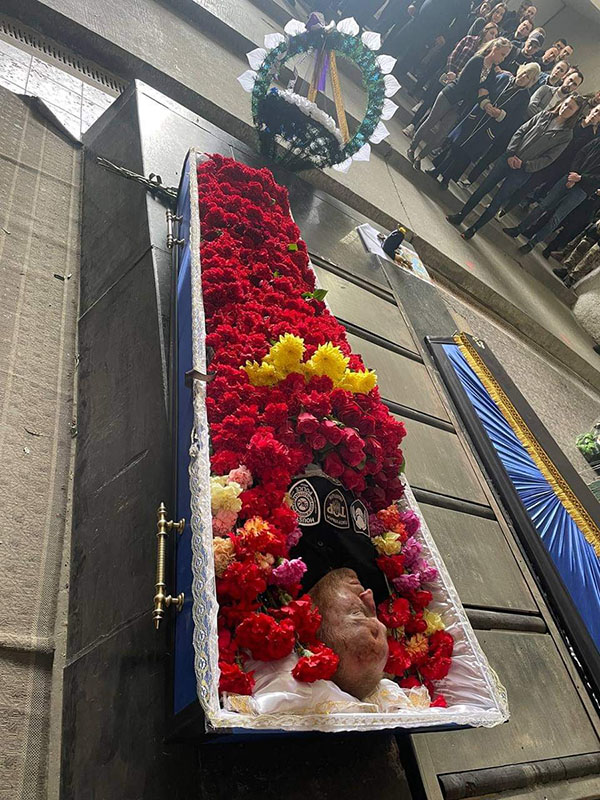
While in Kiev, I attended the officer’s funeral who we retrieved from Nikolaev (Mykolaiv). The flowers in his coffin are there because every person who attended his funeral brought a single flower. And as each person would pass and give their respects to him, that flower would be placed in the coffin with him. The flowers leave an image of how much he was cared for and respected. The patches on his chest symbolized that he was a member of Tor which is a specialized unit in tactics and medical and crowd control. Myself and other officers helped start that unit and he was of mine, he was one of ours. When it was my turn and I passed him, then gave my flower to his casket, I wanted to be sure that what he had done and what we had done together would not be forgotten. I took the last patch I had from my unit, and I laid it on him, because he was one of us and I wanted everybody to know it.
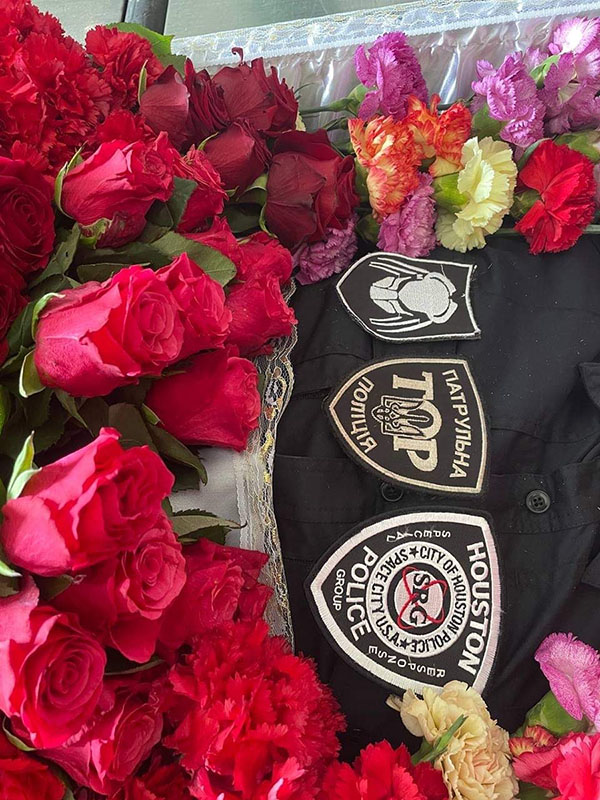
At the funeral, there was a photographer from the department there to record the event. This was the first officer to be lost in the war and they wanted to be sure that it was remembered and documented. The photos were shared with me and one of the photos showed the three patches on the officers uniform on his chest. The Tor patch which was his unit. The Predator, a new patch which was created by the chief of the patrol police. And the patch that I gave him from my unit. It was the last one I had and I removed it from my uniform and gave it to him.
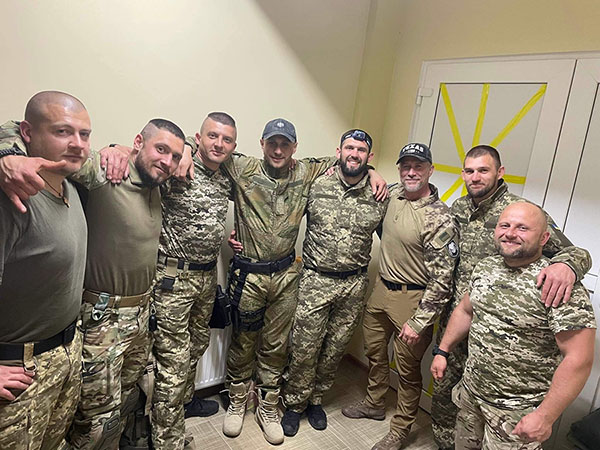
I was in the city of Nikolaev (Mykolaiv) on the Black Sea with a group of officers to retrieve the body of a fallen officer. Although they are police officers, they are also serving on the front lines to help defend and protect their country.
I was asked to be a part of the group that would go and help retrieve him. I felt it was an obligation. He had no family or living relatives. We were his family. We transported him back to the capital of Kiev where he could be buried and honored for the sacrifices he had made.
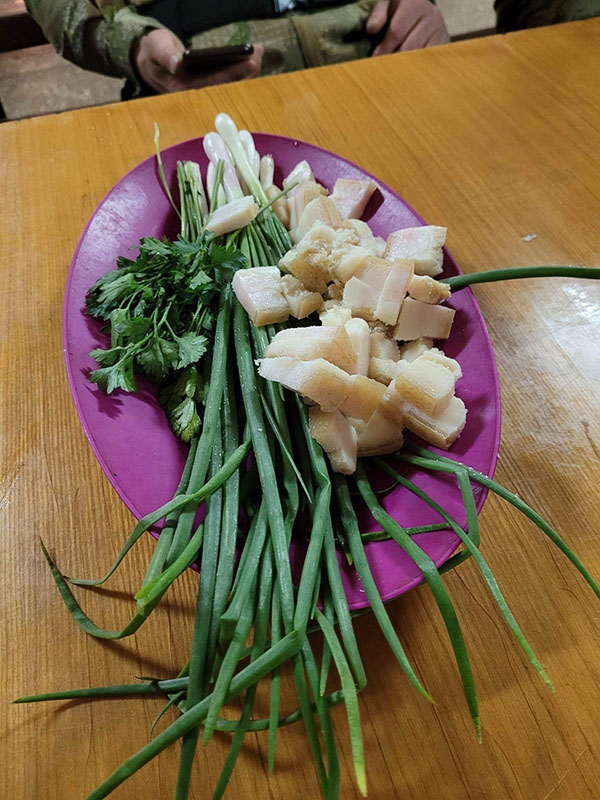
While in Ukraine, we found that supplies were rather limited and you could only truly eat what you could find/scrounge up. While in Nikolaev (Mykolaiv), the officers and I had gone out and gathered field onions and other available plants and so forth, and we used fat to help build calories to sustain us while working.
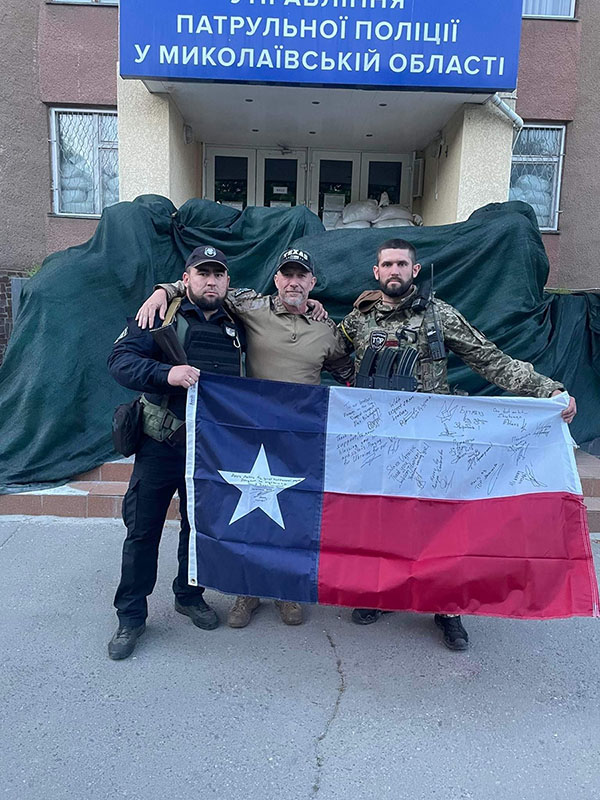
While I was in Nikolaev (Mykolaiv) I went to the local police statsion and met with those officers along with officers from Kiev. And again, I wanted them to know that we were thinking about them, with their struggles and all they were going through, that at least someone who had at one point helped train them and had helped develop their profession, remembered them and was willing to risk being there to show ongoing support.
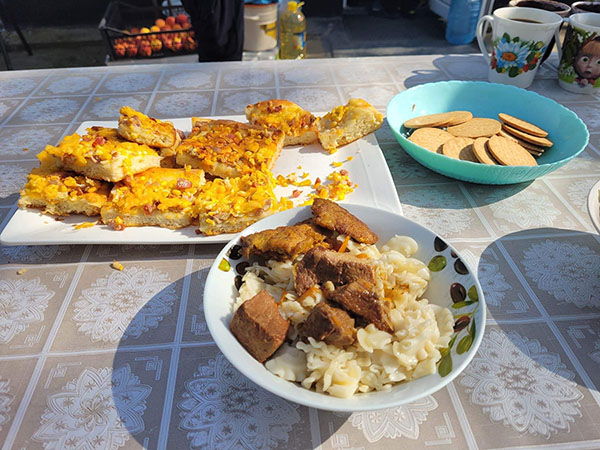
I visited a very small village, far from the big cities. Residents of this small village, farmers, workers, didn’t have much but they fed us with what they had. It was one of the best meals I had there. They shared. They didn’t ask for anything in return.
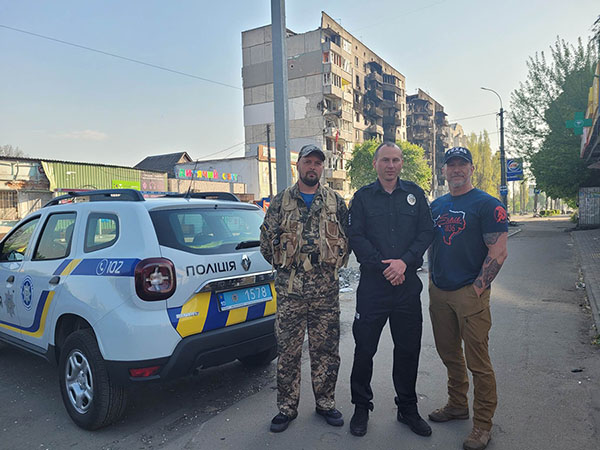
While on my mission in Ukraine, I went into Bucha, which had been detroyed by the Russian military. While I was there I met one of the only Ukrainian police officers who had stayed during the assault. We talked and he shared his story with me about his days trying to stay in his city and help everybody that he could when everyone else was trying to leave, evacuating. He stated and he is still there doing the best he can. And he is by himself.
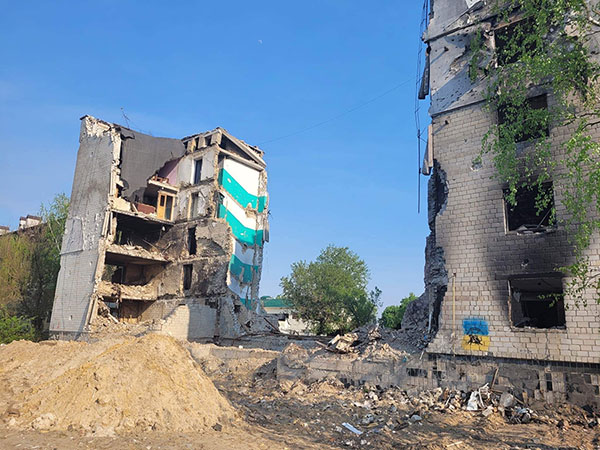
In Bucha, the apartment complexes are huge and run for blocks and house thousands of families. The officer who I met in Bucha who did not abandon his post described to me how the Russian tanks and artillery would hide behind the buildings and would fire rounds through the buildings towards the capital, Kiev. If Kiev military tried to respond, they would have to fire through their own apartment buildings to be able to hit the Russian tanks and artillery. Something that they wouldn’t do. Before the Russian military would leave, they continued firing on the apartment buidlings from their side, creating massive holes in what used to be a single structure.
